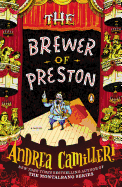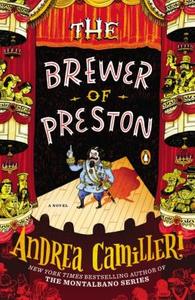

Sophisticated, carnal and wildly funny, Camilleri's depiction of that night is a farce on a grand scale. In a tight 233 pages, there are 160 named characters, a Dickensian plethora of colorful, hot-headed Sicilians loaded with eccentricities, loving, cheating, making money and killing with zest. Camilleri is a writer's writer: he playfully begins each of the 23 chapters with a parody of a famous novel's first sentence (represented here are García Márquez, Molière, Sterne's Tristram Shandy, Mann's The Magic Mountain, Melville, Conrad, Chekhov, Calvino, Durrell, Bradbury, Huxley and even Karl Marx); all the original lines are in translator Stephen Sartarelli's footnotes.
The tempestuous politics and convoluted scheming surrounding the doomed production are just as byzantine as any opera. Sicilian justice is only a poetic concept and seldom dispensed by those authorized to do so. Executions (at the hands of the police, or others) are not uncommon. The bringers of violence tend to reap what they sow, if not always for the right reasons. Camilleri delights in double-talk, innuendo, blatant lies and double-crosses. In the final 40 pages, the surprises go off like a string of firecrackers, as the veneer of respectability is shattered. Nothing is what it seems, and for good measure Camilleri concludes his theater-in-flames disaster with a whitewashed official account "rewritten" 40 years later by one of the characters.
Ferociously cynical, Camilleri juggles more plot threads in this slim volume than could be found in a bulky trilogy, all of which converge at a gallop in a finale full of Sicilian laughter, horror and tears. --Nick DiMartino, Nick's Picks, University Book Store, Seattle, Wash.
Shelf Talker: A new theater's opening night goes up in flames in this Sicilian historical novel from the creator of the Inspector Montalbano mystery series.

